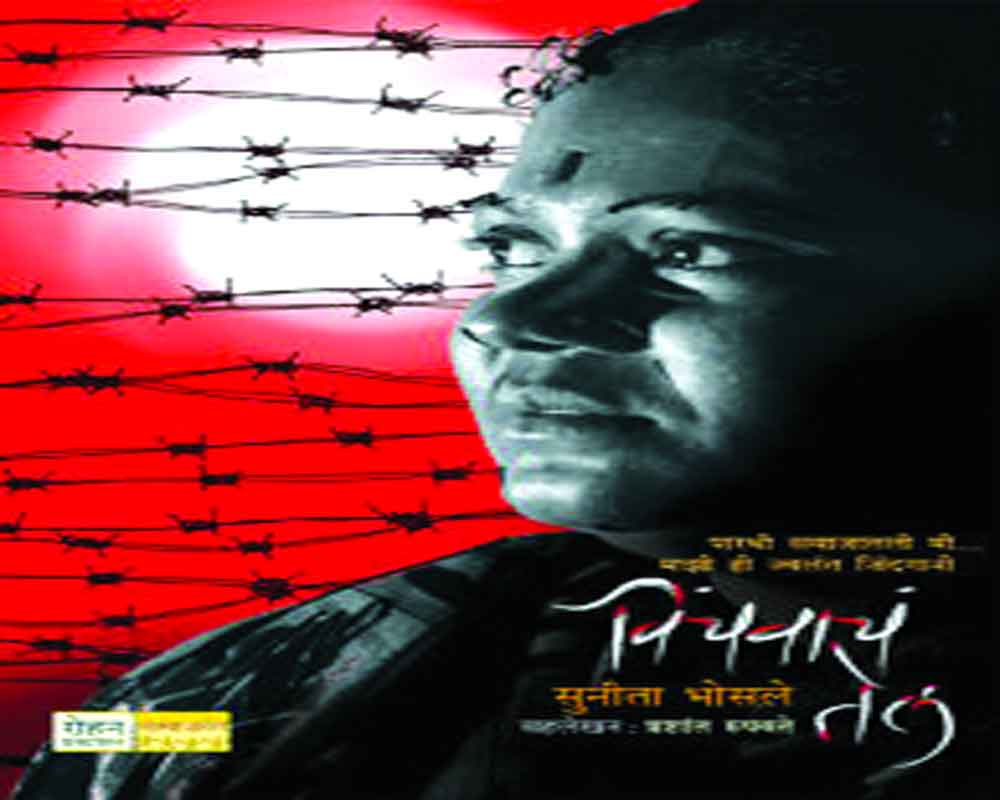Activist Sunita Bhosle has lived an extraordinary life, says Prashant Rupawate, co-author of her autobiography Vinchavacha Tel
Sunita Bhosle, who is at the forefront of the fight to protect the Pardhi community's self-esteem, has been recently awarded the Karyakarta Purskar (Activist Award) by the Maharashtra Foundation — a charitable organisation established under the laws of the United States and committed to the basic humanitarian principles of freedom, equality, secularism and human rights enshrined in the American Constitution. Her autobiography, Vinchavacha Tel (scorpion oil), is the tale of her struggle. In this article, I, as a co-writer of the book, evoke some memories from the creative process of the book.
All of us like to tell stories about ourselves. However, Bhosle’s life struggle is no less dramatic than a film or a play and is certainly worth recounting. She speaks breathlessly, without a pause, like a bursting spring. She doesn't allow a breather so much so that even though she spoke in Marathi, I had difficulty understanding. For me, the issues of caste, exploitation, injustice and atrocities weren't new. My father, professor G V Rupavate, while studying in college, lived in a hostel for Dalit students. It was established by Dadasaheb Rupavate, an Indian politician, Ambedkarite, social activist and newspaper editor from Maharashtra. His was the second batch of students. In the first batch were luminaries like writer Daya Pawar (his memoir Baluta is considered a milestone in Dalit literature), scholar Raosaheb Kasbe and Madhukar Pichad, who was a minister in the Maharashtra assembly.
My father was involved in social movements and activist writers like Lakshman Mane, Parth Polke held meetings in our house. So, even though I was exposed to several movements and thoughts, when I heard Bhosle’s, I was shaken from within. I decided that her account needed to be made public. There was a need to expose the dark and heinous side of the so-called great, tolerant and vibrant culture which denies any civility to the groups living on the edges and from it Vinchavacha Tel took shape.
I went to Shirur to meet her. We caught up at the cluttered and oily canteen in the State Transport Corporation's Shirur Depot. She started speaking like a torrential flow and began narrating the bundi incident (bundi is a sugared and fried ball of chickpea flour).
“It was May and really hot even at eight in the morning. By 10 o'clock, the temperature would rise to 35°F. It was also the wedding season and I got to know of one which was to take place at Kalvantwadi, around 2 km from our place. I went there with my younger brother, Avinash. We were waiting for hours in front of the wedding hall near the garbage bin. The wedding feast was in full swing from the morning till 4:00 pm. We would run to the garbage bin once the plates were thrown there, shoo away the stray dogs and collect the bundis in a plastic bag. All this while we worried about being shooed away by the police. Hence, we kept the packets of bundi hidden under a tree. When we went there after some time, the packets were gone. The stray dogs had taken them away. The hard work we had put in was wasted. We couldn't stop crying and hearing those, people from the wedding hall came out. After listening to us, they understood the real situation and they generously gave us fresh bundi," narrated Bhosle.
I was engrossed in Bhosle’s riveting account when the TV set in the canteen started telecasting the news about the successful launch of the Mangalyaan Mission. The Prime Minister, while congratulating the scientists at the Srihari Kota spaceport, was proud of the great and glorious culture of ancient India. That was the moment when I found it imperative to bring the ancient and ‘glorious legacy’ of India in which Bhosle lived before the world.
We titled the book Vinchavacha Tel because it reflects the exploitation Bhosle's community is subjected to. Scorpion oil is used as a weapon against any accused, from a ‘low caste’. They apply this oil to the genitals of the accused man which causes them to swell and burning of the genitals. The accused is not able to endure the pain and pleads guilty. This is similar to an attack on creativity. Society has used this oil as a weapon against the Dalit, the dispossessed and nomads. It's used in various metaphorical forms to evoke caste divides or at times to further the agenda of divide and rule.
Sunita belonged to the caste living on the edges. She was born into a tribe branded as 'criminal'. She had to face violence and discrimination since childhood. But she's brave and started speaking out against the criminalisation and exploitation of Phase Pardhi since she turned 11. Vinchavacha Tel is the life story of this fiery and self-made activist.
(Translated by Alka Gadgil.)
— Charkha Features


























